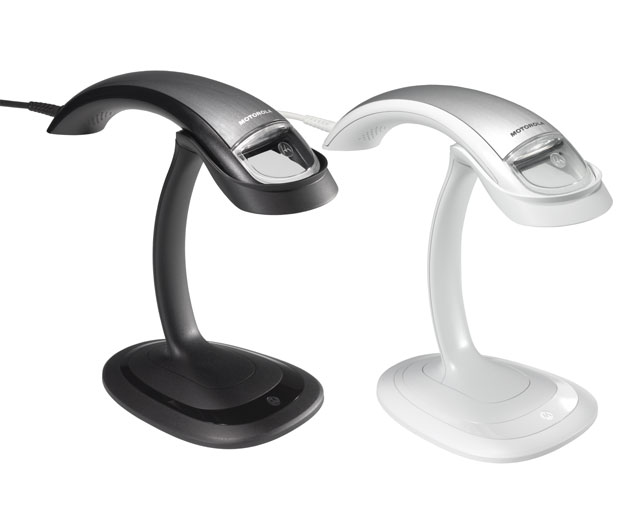.jpg) VS
VS
Datalogic Advantages
• Motion tolerance, Print contrast, Multi-Interface, Aiming system
• New design and unique features: Side and top lights, Datalogic’s ‘Green Spot’ technology
• Price
Competitor Weaknesses
• None
Synopsis
The Heron HD3430 2D imager uses a Global Shutter WVGA sensor vs. 1MPX rolling shutter sensor of DS4800. This
component choice allows the Heron imager to be snappier and with better motion tolerance vs. a longer reading distance
and better image capture size of the Zebra product. This diverging strategy for a product used mostly on a stand and for
customers seldom requiring image capture capability provides Datalogic with the most effective set of performance
features to satisfy at best target application requirements.
Also, the Heron imager guarantees the usual set of multi-interfaces in a single product which is still one of the most
appreciated values provided to channel customers, who are typically stocking one product and different cables to be
bundled when necessary.
Additionally, the Heron HD3430 imager provides a significant number of unique features (lights, music, color, material, inmold
decorated top covers, Green Spot technology, etc.) over the DS4800 even if the two products are basically sharing a
similar value proposition.
The DS4800 uses a capacitive trigger hidden on the top cover and vibration as additional reading feedback. Datalogic does
not believe these features provide any value to the operator.
As a last but not least important point, the Heron 2D imager will be positioned slightly below the DS4800 in cost providing
a better price with more value to Distributors, VAR’s and trickling down to the End Users.
The DS4800 is definitely the referenced competitor for new Heron HD3430 2D imager, and with no real weak points, this
reader is the only serious opponent to be challenged for the target market and applications.